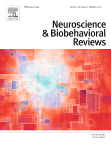 A prominent researcher at the University of Florida is under federal investigation for research misconduct and has lost at least one paper as a result of the fraud.
A prominent researcher at the University of Florida is under federal investigation for research misconduct and has lost at least one paper as a result of the fraud.
The researcher, Nasser Chegini, was a professor of obstetrics and gynecology at the U of Florida until about six months ago, when he retired, according to the chair’s office. Nasser has received at least $4 million in federal grant funding, according to the university.
The retracted paper, “MicroRNA 21: response to hormonal therapies and regulatory function in leiomyoma, transformed leiomyoma and leiomyosarcoma cells,” was published in 2010 by Molecular Human Reproduction. The authors were Qun Pan and Xiaoping Luo and Chegini.
As the notice explains: Continue reading ORI investigating University of Florida ob-gyn researcher accused of misconduct
 The retraction counts keep mounting for two Retraction Watch frequent flyers.
The retraction counts keep mounting for two Retraction Watch frequent flyers.






